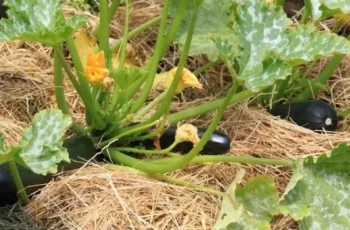The Importance of Proper Crop Rotation in Sustainable Agriculture
Crop rotation is a foundational practice in sustainable agriculture that offers numerous benefits, including maintaining soil fertility, managing pests, and improving crop yields. Neglecting crop rotation can lead to severe consequences such as soil degradation, pest and disease outbreaks, reduced productivity, and over-reliance on chemical inputs.

Soil Degradation and Nutrient Depletion
One of the most significant consequences of poor crop rotation is nutrient depletion. Different crops absorb varying nutrients from the soil. Repeatedly growing the same crop depletes specific nutrients, weakening soil fertility. For example, crops like corn heavily rely on nitrogen. Without rotation with nitrogen-fixing plants, nitrogen levels become low, and farmers must rely on synthetic fertilizers, which can lead to soil toxicity and environmental pollution.
Erosion and Loss of Soil Structure
Continuous cultivation of the same crops weakens soil structure, making it more prone to erosion. Shallow-rooted crops fail to provide adequate soil stability, and the topsoil may wash or blow away over time, reducing the land’s ability to support healthy plant growth. Soil erosion can also cause sedimentation in rivers and lakes, disrupting aquatic ecosystems and water quality.
Pests and Disease Build-up
One of the most pressing issues with poor crop rotation is the increased spread of pests and diseases. Many pests and pathogens thrive when the same crop is grown continuously, as they have a constant food source. For example, soybean cyst nematodes increase when soybeans are grown year after year, and soilborne diseases like Fusarium wilt thrive in continuous tomato fields. These pests and diseases force farmers to rely on chemical treatments, which can become less effective over time.
Decline in Productivity
With nutrient depletion, weakened soil, and increased pests, agricultural productivity declines. Crops struggle to access necessary nutrients, leading to lower yields. For example, continuous wheat cultivation can lead to root diseases and nitrogen depletion, resulting in poor grain development. Farmers must then invest more in fertilizers and pest control, eroding their profit margins.
Over-reliance on Chemicals
As monoculture degrades soil health, farmers increasingly depend on chemical fertilizers and pesticides to maintain productivity. This reliance can lead to soil toxicity, reduced microbial diversity, and groundwater contamination. Additionally, repeated pesticide use can cause pests to evolve resistance, making control more difficult. Herbicide-resistant weeds, such as Palmer amaranth, have become a significant issue in fields where crop rotation is ignored.
Microbial Imbalance
Healthy soil ecosystems rely on microbial diversity to promote nutrient cycling, organic matter decomposition, and disease suppression. Neglecting crop rotation reduces microbial diversity, leading to an imbalance that favors harmful pathogens. Rotating crops like cereals and legumes supports beneficial microbes, improving soil health and fertility.
Soil Compaction and Water Retention
Poor crop rotation also contributes to soil compaction. Repeated use of heavy machinery and the lack of deep-rooted crops like radishes or alfalfa can result in soil layers that prevent water infiltration. Compacted soil leads to drought stress, even in areas with adequate rainfall. Including deep-rooted crops in the rotation helps improve water retention and reduce compaction.
Vulnerability to Extreme Weather
Soil with poor structure is more vulnerable to extreme weather conditions. Degraded soil struggles to absorb moisture during droughts and erodes more easily during heavy storms, leading to flash floods and topsoil loss. Strategic crop rotation can build soil resilience, helping farms withstand unpredictable weather patterns.
Long-term Agricultural Sustainability
The cumulative impact of poor crop rotation leads to the long-term decline of agricultural sustainability. As soil fertility decreases and pest pressures increase, farmers face growing challenges in maintaining productivity. Sustainable agriculture relies on practices that promote soil health, biodiversity, and ecological balance. Neglecting crop rotation undermines these principles and results in a reliance on short-term solutions.

Conclusion
Poor crop rotation leads to a host of negative outcomes, including soil degradation, pest and disease buildup, reduced productivity, and increased dependency on chemicals. Farmers can combat these challenges by incorporating diverse crops into their rotation plans. This practice improves soil quality, reduces pest pressures, and ensures the long-term viability of farms. By prioritizing crop rotation, farmers can build resilient farming systems capable of adapting to future challenges.

